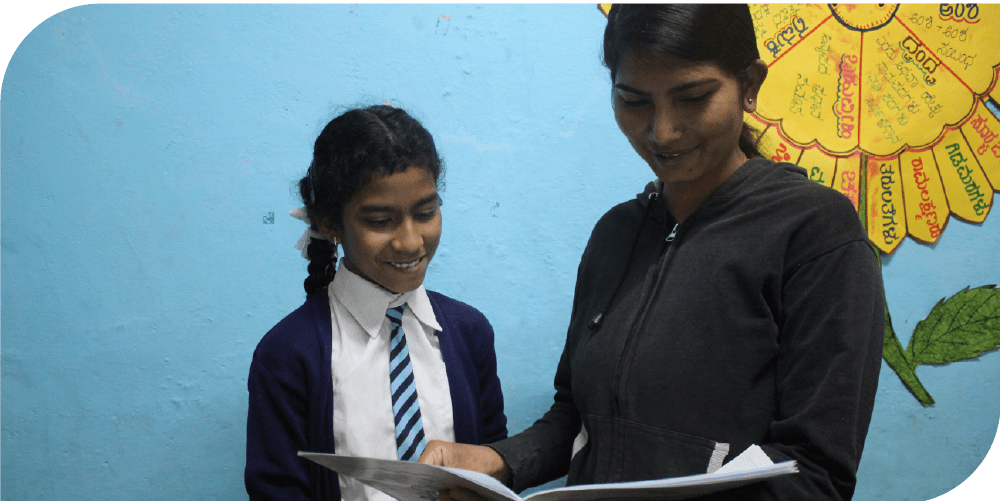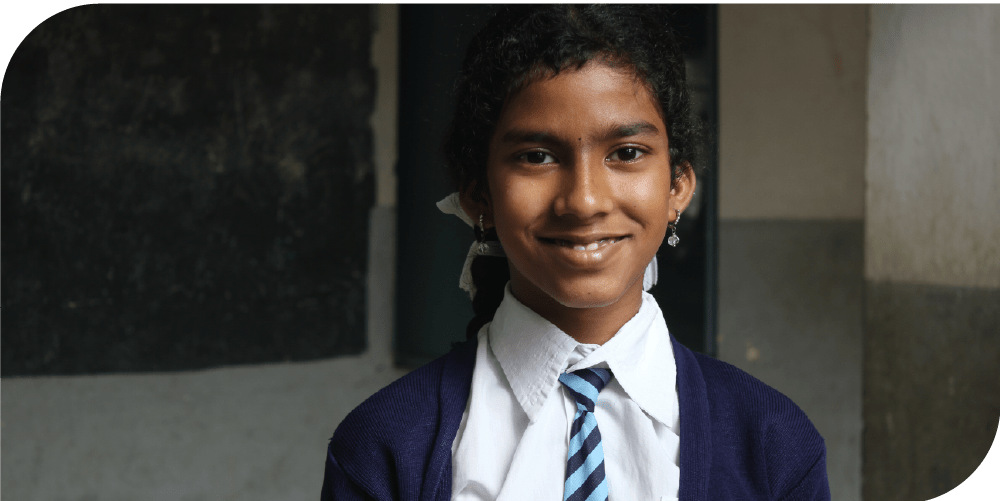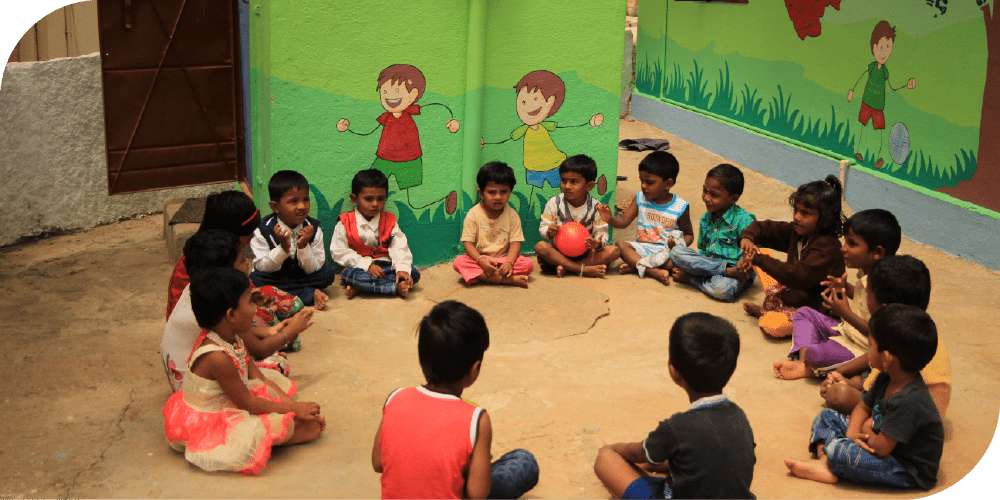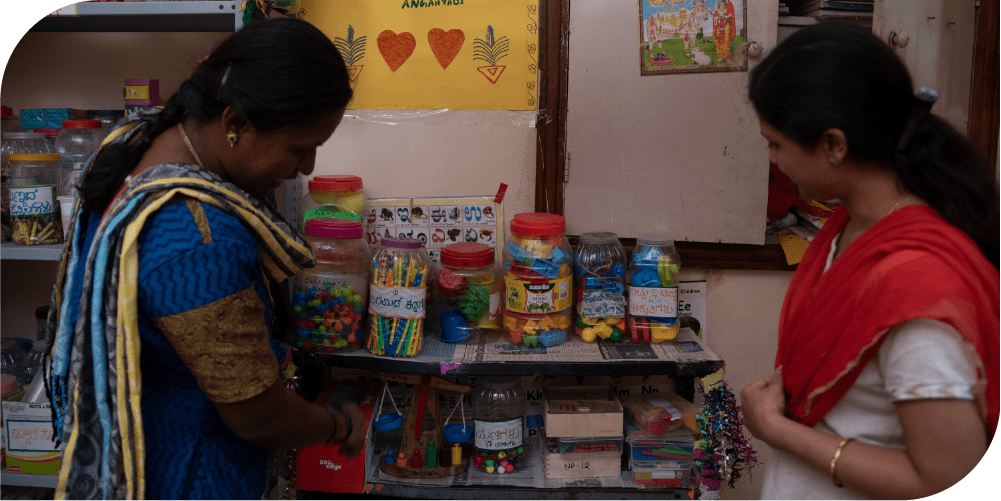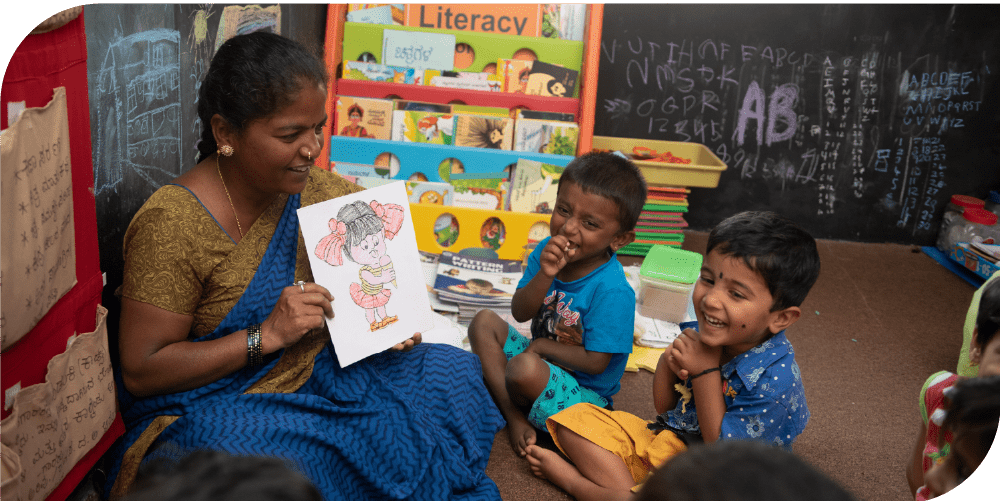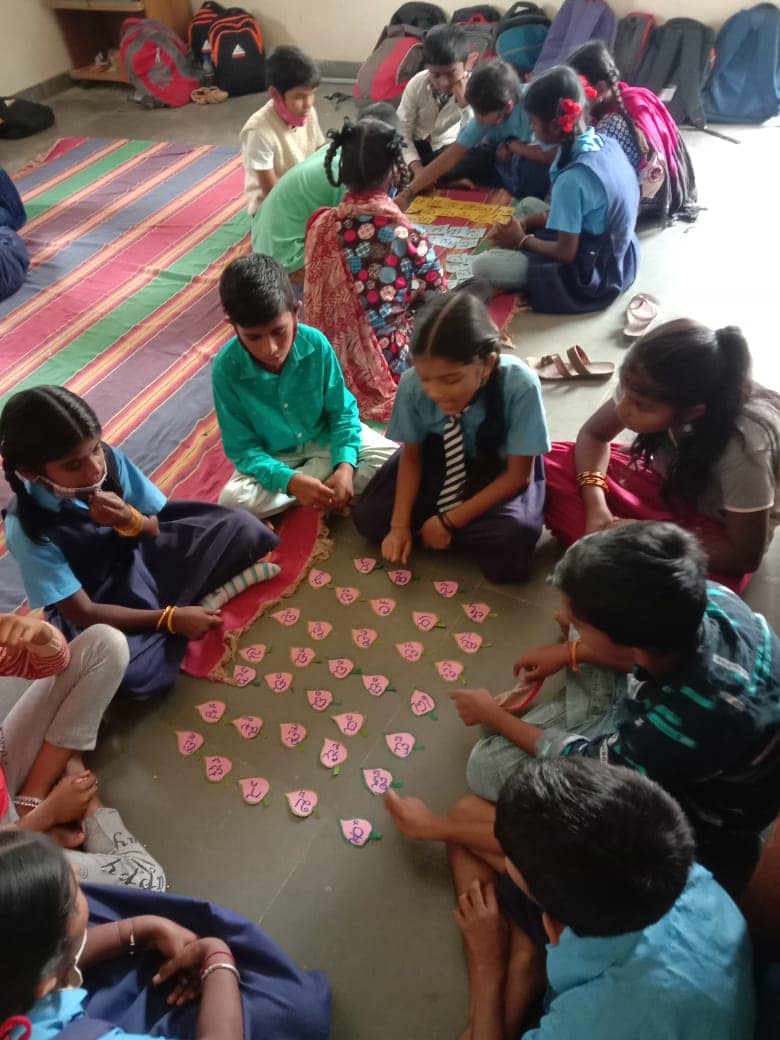
With nearly two years of closure of schools, our children were reliant on lessons they would get virtually, through Zoom, WhatsApp or YouTube. Children were longing to meet their teachers and classmates for quite a while.
In November 2021, schools reopened, which brought some relief to children, parents, and teachers alike. However, it was not easy for children to get right back into action at school. Being removed from classroom learning, the pace differed from what they had just gotten used to while learning at home. Children had to make adjustments once again, this time with “learning at school”.
Makkala Jagriti, a holistic development NGO in Bangalore, worked systematically to ensure these adjustments happened smoothly. The first step was to conduct an assessment to gauge where the children were in terms of their learning levels. The results showed what we expected – they had fallen behind quite drastically in their learning levels, even in foundational literacy and numeracy. To address this, Makkala Jagriti started specially designed bridge courses to help children close the gaps in their foundational learning.
Our facilitators used a number of strategies to make sure learning is enjoyable and effective, and one that worked very well has been peer learning.
Makkala Jagriti’s facilitators created groups of children with different learning levels, with the group leader responsible for the group’s learning.
The response of our children to this initiative was beyond what we expected. Children took the initiative to create their own WhatsApp groups, which led to greater engagement beyond the confines of the classroom! They became so invested in each other’s academic growth that they exemplified the value of leaving no child behind.
We observed a renewed enthusiasm among children who needed a little boost in understanding and interest in the subjects. Numerous studies have shown that children tend to respond more when their peers teach them in a collaborative and non-threatening manner.
Peer learning, however, is not a one-way street. A great deal of mutual learning happens; children who take the lead also have the opportunity to assess their own understanding of the lessons. By explaining what they learned to a group, children may discover newer outcomes within the lessons that they can share further. Likewise, children within the group, seeing their classmates taking the lead, may be motivated to take on the mantle of explaining lessons back to their fellow students. All in all, what is formed here is a circular network of the passage of information among students, with the teachers overseeing the activities within the group and ensuring the children are on the right track.
The benefits of peer learning are not confined to the exchange of knowledge alone. A significant advantage of peer learning is improvement in communication and social interaction among children.
Learning through cooperation leads to that same cooperation being extended to other facets of a child’s life – at home and within the community where the child lives. Another benefit observed is that children feel more comfortable opening up and interacting with their classmates than they would with a teacher or an adult guardian.
Numerous studies and theories speak in favour of peer learning. But, the biggest testament to its success lies in what our children have to say about it.
11-year-old Neha, a student of the 6th standard, says it best:
“I miss going to school because of the lockdown. When I was away from class, I had forgotten some of what I had learned in my Kannada class. However, when I came back to school, something new was waiting for me. We were given activities in groups, and thanks to my group, I remembered what I had earlier forgotten. My friends and I helped each other this way, and it was very exciting for me to learn from my friends and teach them as well.”
With the schools closed this last month again, children continue to help each other through the peer WhatsApp groups they created, and we are sure this spirit of collaboration and helping each other is here to stay.



